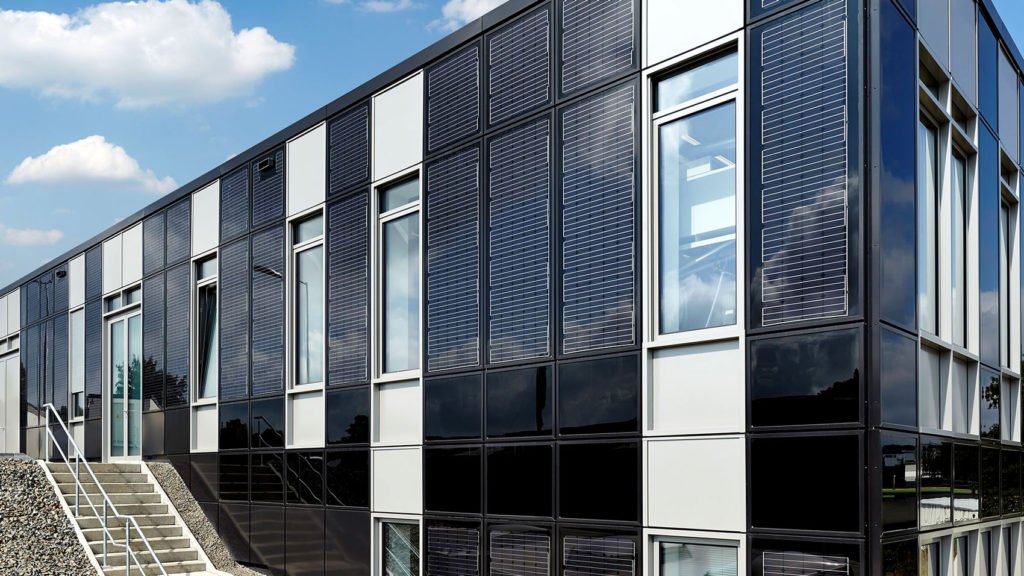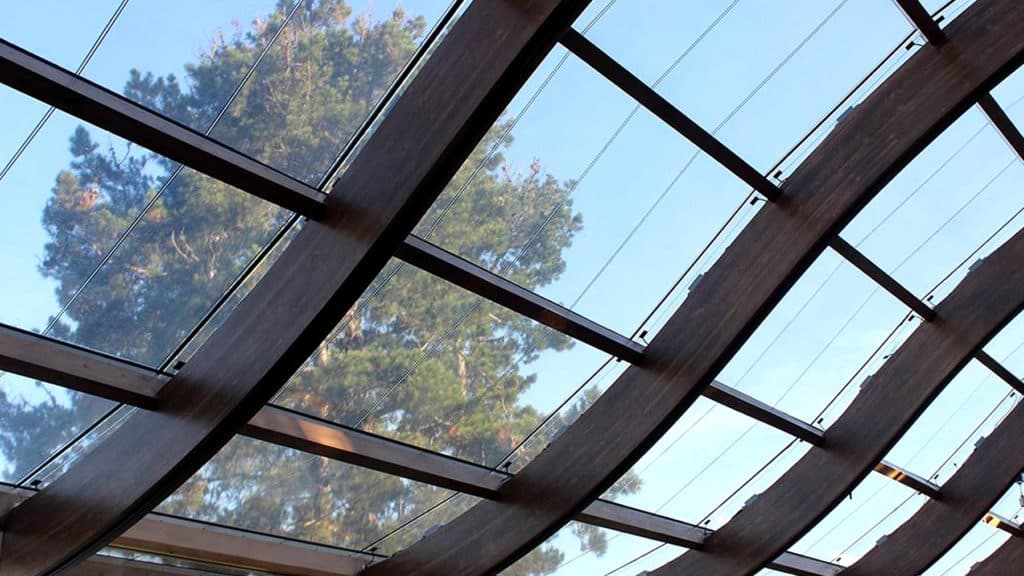While the usage of renewable energy sources is rapidly expanding, solar energy is forefronting this growth. Accordingly, solar technologies and especially photovoltaic systems are improving very fast in recent years. PV systems are an essential part of solar roofing and solar energy production worldwide.
So, photovoltaic roofing materials develop, making it possible to replace roofing tiles and roofing shingles. Installing a PV roofing system is an ideal method of solar energy generation, becoming one of the most promising renewable energy technologies. With the federal government and state government financial incentives, tax credits and other subsidy programs, solar roofing becomes even more beneficial and cost-effective.
Building-integrated solar PV systems consist of several components, named modules. Those modules are integrated onto the building surface, like the roof or the facade.
Solar PV systems add a pleasant architectural look to the house or another building. Moreover, they will help you save money on roofing materials and electricity consumption. Besides, going green with PV systems drops down your carbon footprint and fossil fuel usage.
Building-Integrated PV Market Overview
With renewable energy progress, the demand for building integrated photovoltaic systems is rising. Roofing is a unique enclosure element of the building considering its impact on home energy consumption and environmental exposure. Today environmental impacts, such as global warming, natural resources reserves, air and plastic pollution and harmful emissions, accelerate the climate crisis. The increase in greenhouse gas emissions causes temperatures to rise, eventually causing catastrophic events worldwide.

Green roofing contributes to energy saving, indoor energy control, and air pollution decrease. In the upcoming years, green roofing will increase popularity, thus contributing to the BI photovoltaic market’s immense growth.
In 2020, the global BIPV market was valued at USD 14.4 bln. It is expected to reach USD 59.5 bln by 2028, expanding at a compound annual growth rate of 20%. BI photovoltaics provides a sustainable and effective solution for boosting energy efficiency. The government makes extensive efforts for the solar roofing installation market growth. Plus, the rising aesthetic appeal of integrated solar roofing shingles is another reason for the building-integrated photovoltaic market growth.
Building-Integrated PV Types
So, building-integrated photovoltaics (BIPV) are photovoltaic materials that are used as building materials for roofing. BI photovoltaics are used as replacements for conventional roofing materials in both commercial and residential buildings.
Building-integrated photovoltaics have various types based on modules, applications and end-use. By module type, BI photovoltaics include thin-film solar panels, flexible thin-film solar panels, thin-film or crystalline-based solar panels, and semi-transparent solar panels. In 2020, crystalline silicon photovoltaics dominated the building-integrated photovoltaics market share of over 73%. Monocrystalline and polycrystalline modules also witnessed high application demand in roofs.

Nevertheless, the thin-film technology market growth will be expected to capture a significant share during the forecast period by 2028. The thin-film segment is expected to register 192% growth during the forecast period.
Due to the high efficiency, crystalline-silicon products are a perfect use for residential buildings. The residential buildings have space constraints, so crystalline silicon photovoltaics are the most preferred material choice, especially for roofing. In 2020, BI photovoltaics had over 60% of the roof products market, primarily due to crystalline technologies’ progress. Thin-film solar shingles are more popular for residential roofing.
BIPV And Commercial Sector
With the rising popularity of renewable energy consumption in commercial office spaces, hospitals, airports and other popular commercial spaces, solar roofing implementation in commercial buildings can become a compulsory element of building construction. The main advantage of BI photovoltaics in commercial buildings is the energy generation expenses reduction.
So, an absolute 149% growth is expected during those forecast years. The number of working spaces increases, and, of course, the growing importance of zero-energy practices can also improve BI photovoltaics usage for commercial roofing.
With BI, photovoltaics improve the aesthetic appeal of commercial buildings and provide savings on electricity consumption, providing solar roofing product deployment.

Investing In The BIPV Market
As a result of solar inventions and futuristic solar technologies becoming mainstream, the solar market is likely to boost investments. Technology start-up companies are expected to venture into the BI photovoltaic market, bringing modern technological advances. So, efficient and innovative photovoltaics can lift the market growth during the upcoming forecast period.
Usually, the government gives enormous assistance and promotion policies for PV market growth. The government offers various financial and economic advantages to promote the PV market. Experienced roofing companies and certified roofing contractors are an essential part of the PV market’s future growth.
Lack Of Skilled Workforce In BIPV Installation And Maintenance
Photovoltaic system installation requires a spectrum of skilled workers, ranging from Ph.D. scholars in research and development fields to specialized technicians and other professionals for supporting all aspects of the PV industry.
However, today, the solar PV industry market does not have enough specialized PV installers. Therefore, it can result in poorly installed systems and creating a negative impact on the industry. So, workforce training initiatives will become an essential part of the PV market growth.
Author of a publication: Irene Abgaryan
